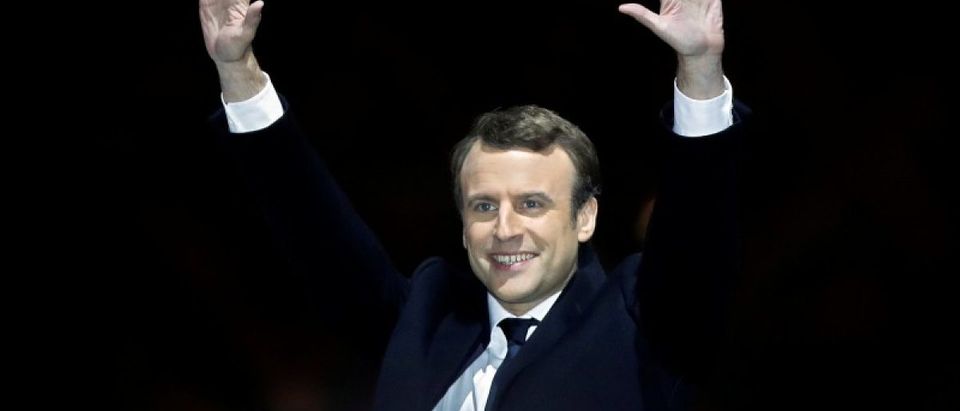Emmanuel Macron’s victory in France’s presidential election Sunday means French residents could see their carbon tax burden grow to $418 per person in the next 13 years.
In his victory speech, Macron said France will show “respect for the commitments made on development and the fight against global warming.” Macron beat nationalist opponent Marine Le Pen by a 66 to 34 percent margin.
One of the former economic minister’s plan to fight global warming is to implement a 100 euro, or $110, per metric ton tax on carbon dioxide emissions.
Macron’s carbon tax plan could cost each French resident $418 a year by 2030, based on current emissions per capita reductions trends analyzed by The Daily Caller News Foundation.
That also assumes Macron follows through France’s pledge to the U.N. to cut emissions 40 percent below 1990 levels by 2030. That would put per capita CO2 emissions at about 3.8 metric tons, amounting to a $418 tax.
If Macron’s carbon tax was imposed today, the average French citizen would pay $555 per metric ton — of course, this cost would vary based on individual energy consumption.
Macron didn’t offer many details about what this carbon tax would look like. For example, would it be on top of existing fuel and energy taxes? Would it be a national tax or done at the EU level? What about the EU’s cap-and-trade plan?
But political plans can fall apart. French politicians abandoned a plan in 2016 to impose a $33 per metric ton carbon tax. The government feared blowback from higher energy prices and some officials feared such a tax might be unconstitutional.
Macron also promised to double France’s wind and solar energy capacity by 2022, phase out coal use and continue with plans to phase out nuclear power. Under this plan, France will only get 50 percent of its electricity from nuclear power by 2025.
Macron will also continue to implement the Paris agreement on climate change and said “France will have to weigh in particular so that Europe ensures the United States faces its responsibilities.” He doesn’t want U.S. President Donald Trump to leave the agreement or scale back Obama administration promises.
Nuclear power is the main reason France can claim per person greenhouse gas emissions are “among the lowest in the developed world.” Retiring nuclear power plants may increase natural gas use, thereby increasing the carbon tax burden for French citizens.
No doubt France will do its best to replace most of its retiring nuclear capacity with solar and wind power, but that may not be cost-effective or technically achievable.
Environmentalists saw Macron’s victory as a good sign, but said more needed to be done to accelerate France’s move to green energy.
“Macron’s victory should not be called a victory for climate in France yet,” Lucile Dufour, a French activist with the Climate Action Network, told reporters at UN climate talks in Bonn, Germany.
“Macron did not make the energy transition a key topic during his campaign. What we can say now is that Macron is unlikely to slow down the French environmental transition. However, if he is not strongly pushed by other countries and also by civil society, he will not accelerate the pace of the energy transition in France,” Dufour said, according to Climate Home.
Follow Michael on Facebook and Twitter
All content created by the Daily Caller News Foundation, an independent and nonpartisan newswire service, is available without charge to any legitimate news publisher that can provide a large audience. All republished articles must include our logo, our reporter’s byline and their DCNF affiliation. For any questions about our guidelines or partnering with us, please contact licensing@dailycallernewsfoundation.org.


